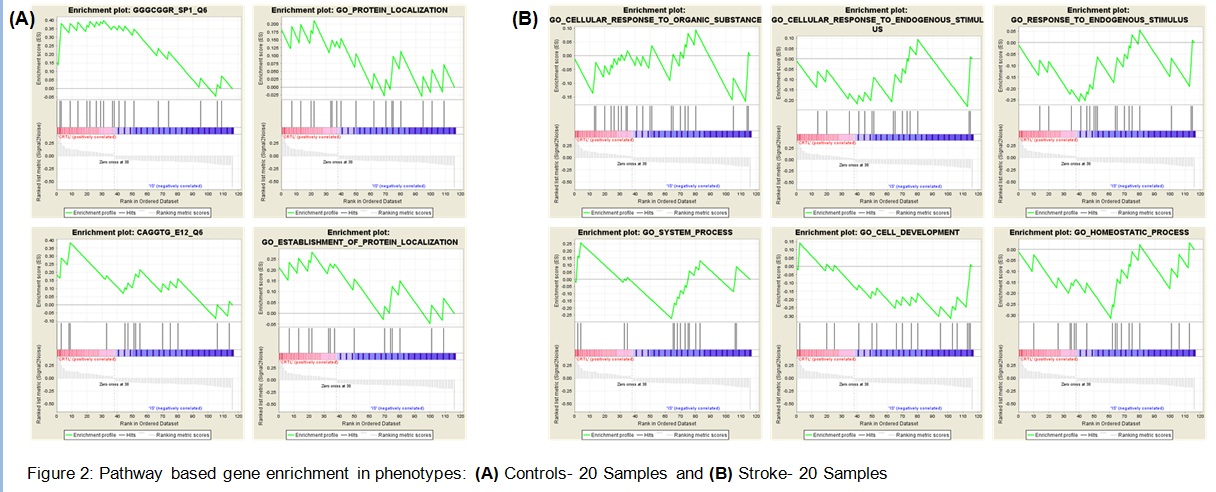Session Information
Date: Monday, September 23, 2019
Session Title: Genetics
Session Time: 1:45pm-3:15pm
Location: Les Muses Terrace, Level 3
Objective: To assess differential expression and gene set enrichment analysis to identify biological pathways associated with stroke and Parkinson’s disease (PD). Further, putative drug targets prediction based on gene ontology/network biology.
Background: Parkinson’s disease (PD) is progressive degeneration of basal ganglia and substantia nigra. These brain regions are affected due to lack of blood supply called as stroke and also known as Vascular Parkinsonism. So, link between stroke and PD may be attributed.
Method: The dataset GSE22255, comprises mRNA expression of peripheral blood mononuclear cells of 20 controls and 20 stroke patients, was used to calculate expression intensity by bioconductor-package “affy” and pair-wise t-test and bonferrani test was applied for significantly altered genes. The gene list associated with stroke and PD was extracted from DisGeNET database. The ontology analysis of significantly altered genes was done using String Database. To demonstrate genes sharing common biological function and coordinated regulation by gene set enrichment analysis. Lastly putative drug targets to control the gene regulation, Reactome-FI-cytoscape-tool were utilized.
Results: In the ischemic stroke (IS), 117 genes were observed to be deregulated and majorities were found to be upregulated (67.5%) with high functional enrichment (68.6%) in disease; however, 32.5% genes were upregulated with 31.4% correlation in controls (Figure 1). Further, GSEA results revealed two significant deregulated pathways: (i) cell development pathway (NOM p-val=0.813; ES=-0.31; NES=-0.75) with three markers (SLC18A2, SLC12A5, RHAG) and (ii) homeostatic process (NOM p-val=0.602; ES=-0.31; NES=-0.89) with five markers (ETV5, PARVA, SLC12A5, RHAG, BMPR1B, ROBO2) (Figure 2). Identified genetic markers were found to be linked with PD; Additionally, two genes namely SLC12A5 and RHAGI were found as druggable targets.
Conclusion: Pathway based expression and GSEA showed cellular homeostasis and cell development pathways are affected that can be link between stroke and PD. The vesicular transporters of solute carrier (SLC18A2 and RHGI) enhances dopamine release for cellular homeostasis whose deregulation is linked to PD and stroke phenotypes. On the basis of FDA-approved cancer drugs and its target interactions data, two genes were screened as putative drug targets. However, further analysis is required for clinical developments.
To cite this abstract in AMA style:
H. Singh, V. Swarup, A. Srivastava. Genetic markers revealed in dysregulated pathways in ischemic stroke may lead to Parkinson’s disease [abstract]. Mov Disord. 2019; 34 (suppl 2). https://www.mdsabstracts.org/abstract/genetic-markers-revealed-in-dysregulated-pathways-in-ischemic-stroke-may-lead-to-parkinsons-disease/. Accessed February 23, 2026.« Back to 2019 International Congress
MDS Abstracts - https://www.mdsabstracts.org/abstract/genetic-markers-revealed-in-dysregulated-pathways-in-ischemic-stroke-may-lead-to-parkinsons-disease/


